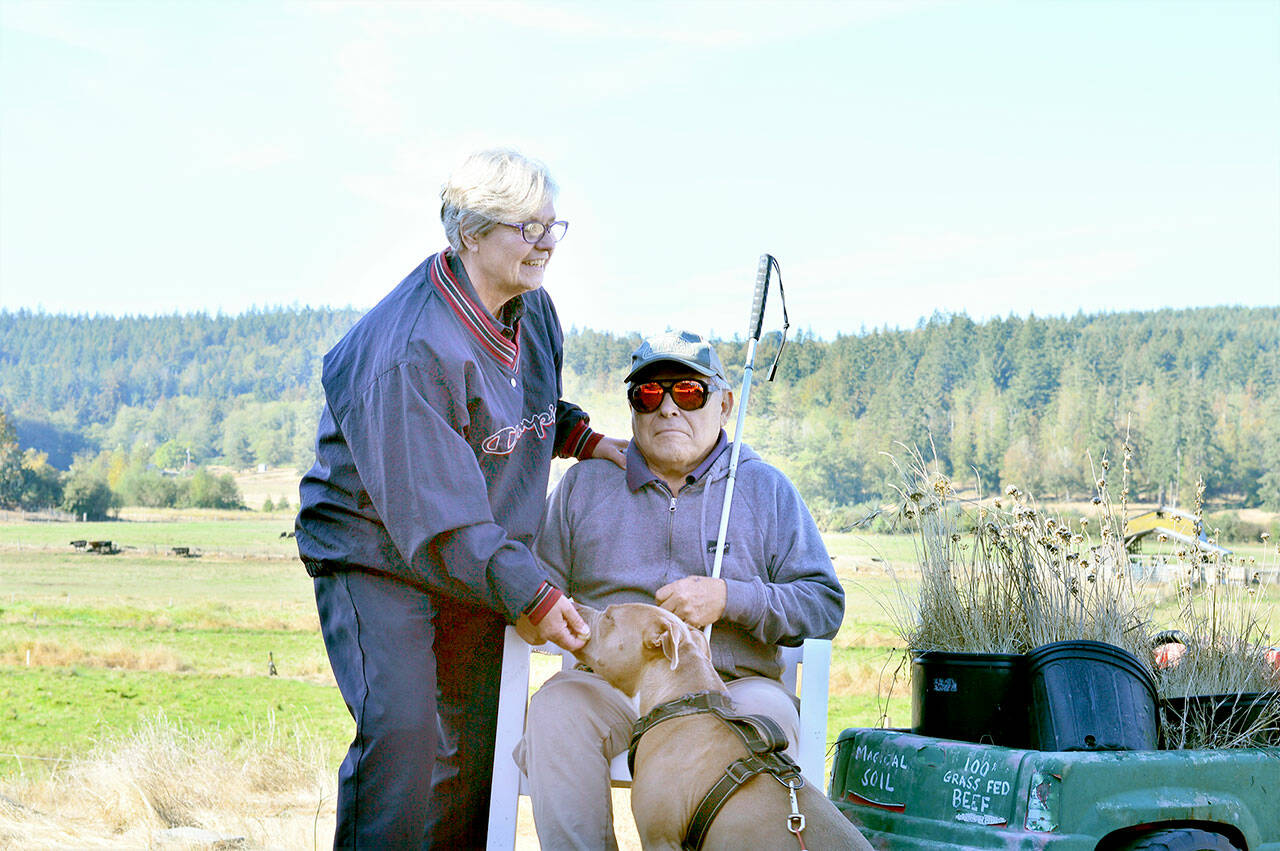PORT TOWNSEND — Port of Port Townsend is considering buying a cattle farm in the Chimacum Valley and has signed a non-binding letter of intent with the owner while it reviews options for the property.
Port officials announced Wednesday that the agency had entered into an agreement with Roger and Sandy Short, owners of Short’s Family Farm, a 253-acre cattle farm on Center Road in the Chimacum Valley, that they would not market the farm for the next four months while the port has the property appraised.
The farm, if it is acquired, would be the port’s entry into the agricultural sector.
It would align the port and its county-wide economic development mission with an agriculture economy that is both historic and growing in Jefferson County, according to Port Executive Director Eron Berg in a press release.
“While the port is known for its marinas and airport, it has also had the mission, in its century-old foundation documents, to support agriculture,” he said,.
If it acquires the land, the port wouldn’t run any farm operations but officials are considering leasing the land out in parcels that are more affordable for small farmers, Berg said in an interview.
What the port could do with the farm is still being developed, Berg said, adding that other ports in the state have been successful in supporting farms in those regions.
“We don’t have a vision that is anywhere near developed,” Berg said. “We have a sincere desire to support the agriculture sector, also I think a desire to support the resilience qualities of being able to produce food right here at home.”
The land is still being appraised, but Berg estimated its value between $2 million and $2.5 million. Roger Short said Thursday that the asking price is $2.5 million.
Short’s Family Farm is located at 1720 Center Road in an unincorporated area of Jefferson County, and a portion of Chimacum Creek runs through the property.
The port learned the Shorts were interested in selling their farm via Port of Port Townsend Commissioner Peter Hanke, himself a cattle owner, who introduced the two parties.
In 2016, the Shorts signed a conservation easement managed by the Jefferson Land Trust that prevents the farm from being subdivided, meaning that the entire 253 acres must be sold together.
Berg said most area farmers can’t afford to purchase the whole farm, but if the port were the owner it could lease out smaller, more affordable parcels and potentially spur growth in the local agriculture sector.
A decision on whether to buy the farm won’t be made until January, Berg said, and until then the Shorts have agreed not to accept any other offers.
Roger Short said he likes what the port is offering, but he still hasn’t made a final decision on who he’ll sell the farm to.
“I’m inclined to sell the port. We’ll see what the appraisal comes in at,” Short said in an interview.
“But if someone comes in and offers considerable more money, I’m inclined to consider that too.”
Short’s family has owned the farm since 1945, he said, and the farm currently sells grass-fed beef and gardening soils.
The farm was known for excellent waterfowl hunting, Short said, and he could understand someone wanting to buy the property for that purpose. Short emphasized that he hadn’t made any decisions regarding the sale, but said that in addition to price, he also would consider what the buyer intended to do with the land.
“I would like to see it related to agriculture and producing local food for the local people,” Short said. “It gives me a good, heartwarming feeling (hearing) people talking about locally produced beef.”
Agricultural development is covered by the port’s original charter and Berg said other ports such as Skagit and Walla Walla have had success developing their local agricultural economies. There are certain limitations to what the port can do with the land which still need to be reviewed Berg said, but the port has already been in contact with local farmers who are interested in the idea.
“We need investment at a scale that small farmers can’t afford,” said Crystie Kisler, co-owner of Finnriver Farm and speaking on behalf of the nonprofit Chimacum Center.
Farmers could use cold storage, dry storage, scaled compost and tool and machine sharing among other possible resources, Kisler said in the port’s release.
Further discussion of possibilities for the farm will be discussed by the port commission in the coming months, Berg said.
________
Reporter Peter Segall can be reached at psegall@soundpublishing.com.

